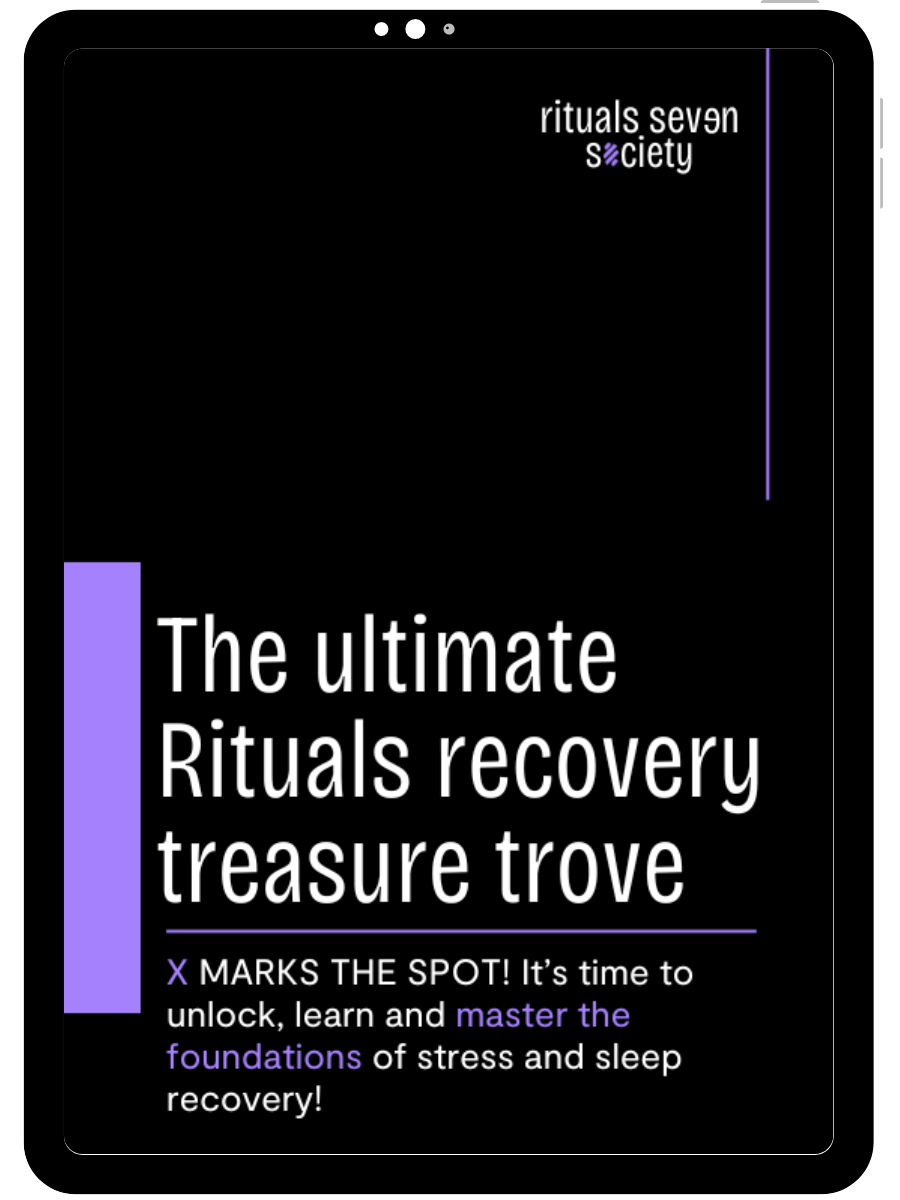Cortisol…Unravelling the stress hormone
As a stress and sleep recovery coach with a deep interest in women’s hormonal health (thanks to my studies with IIN), I’ve become fascinated by cortisol, stress and its impact on our health. There’s so much information out there, but often it’s missing the basics. So, let’s get down to it.
Disclaimer: While I’m your go-to stress and sleep recovery coach, this blog is for informational purposes only and doesn’t replace professional medical advice! I know where my lane is, and I’m staying in it.
Understanding cortisol, stress and your health
Cortisol is a steroid hormone produced by the adrenal glands, two small glands located on top of your kidneys. It’s part of the body’s stress response system, often referred to as the hypothalamic-pituitary-adrenal (HPA) axis.
When we’re faced with a perceived threat (real or not), our brain sends signals to our adrenal glands to release cortisol. This hormone then triggers a ton of physiological changes, including:
- Increased blood sugar levels: Providing energy for a quick response.
- Suppressed immune system: To prioritise immediate survival needs.
- Increased blood pressure: To enhance blood flow to vital organs.
- Sharpened focus and alertness: Preparing the body for action.

While essential for short-term survival, chronic cortisol elevation can have detrimental effects on your health.
What happens when we’re faced with chronic raised cortisol levels?
When cortisol levels remain high all the time, it can disrupt various bodily functions, which no surprise, leads to a range of health dramas. This constant stress can lead to:
- Metabolic imbalances: Weight gain, insulin resistance, and type 2 diabetes.
- Cardiovascular problems: High blood pressure, increased heart rate, and atherosclerosis.
- Impaired immune function: Increased susceptibility to infections and autoimmune diseases.
- Mental health challenges: Anxiety, depression, difficulty concentrating, and insomnia.
- Digestive issues: Irritable bowel syndrome (IBS), ulcers, and inflammatory bowel disease.
- Bone health issues: Osteoporosis and increased risk of fractures.
It’s important to note that these are potential consequences, and the severity can vary from person to person.
How to work towards optimal cortisol levels, reduce stress and improve your health
While it’s impossible to completely eliminate stress from our lives, there are effective strategies to manage cortisol levels and promote overall well-being:
Sleep is your best friend, prioritise it!
When it comes to sleep, think of it like the friends you keep! You want QUALITY, over QUANTITY! The standard rule of thumb is 7-9 hours, but thats not always possible. Natural Short Sleepers thrive on 6 hours, as we age and enter perimenopause and beyond sleep is impacted.
So rather than focusing on aiming for a set amount of hours, focus on getting quality sleep as your priority. Deep restorative sleep is generally achieve in the first half of the night. If you’re not already across it, Rituals Seven Society members gain exclusive access to their very own bespoke Rituals Sleep System. A program aimed at improving sleep quality with tailored evidence based data for members.
So if you’re looking for a way to finally understand sleep, negative influences, and how to actually implement change and habits that are going to benefit you, come and join our society fam!
Finesse yo stress babes!
- Mindfulness and meditation: These practices help calm the mind and reduce stress.
- Deep breathing exercises: A simple yet effective way to lower cortisol levels.
- Time management: Effective time management can help reduce feelings of overwhelm.
- Setting boundaries: Learn to say no and prioritize self-care.
Regular Exercise
Physical activity helps reduce stress and promotes overall well-being. Find an activity you enjoy, whether it’s dancing, swimming, or hiking.
Nourish Your Body
A balanced diet rich in whole foods provides essential nutrients for optimal health. Incorporate plenty of fruits, vegetables, whole grains, and lean proteins.
Limit Stimulants
Reduce your intake of caffeine and alcohol, as they can contribute to stress and sleep disturbances.
Build a Support Network
Strong social connections are essential for emotional well-being. Spend time with loved ones and seek support when needed.
Connect with Nature
Spending time in nature has been shown to reduce stress and improve mood.
Seek Professional Help
If you’re struggling to manage stress or experiencing persistent symptoms, don’t hesitate to consult a healthcare professional or mental health specialist.
Remember, everyone’s journey to better health is unique. By implementing these strategies and making gradual lifestyle changes, you can significantly improve your cortisol levels and overall well-being.

